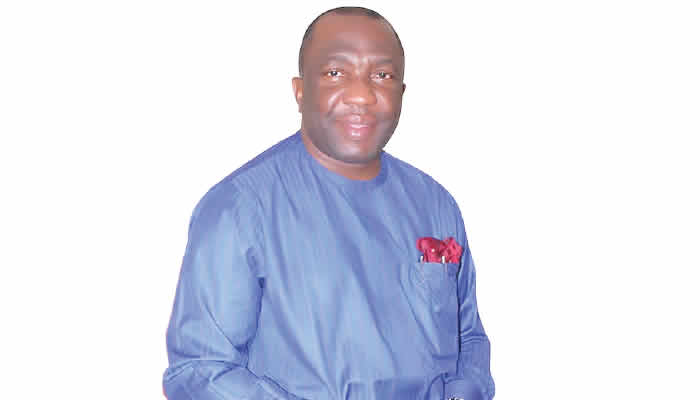The African Democratic Congress (ADC), under the leadership of its National Chairman, Ralph Nwosu, is positioning itself as the vanguard of a broad coalition aimed at challenging President Bola Tinubu in the 2027 presidential election. Nwosu argues that the current administration’s policies have led to economic decline, widespread poverty, insecurity, and a weakening of democratic institutions. He believes the APC, under Tinubu, is attempting to establish a one-party system, a move Nwosu considers detrimental to Nigeria’s democratic future. The ADC chairman emphasizes the party’s unique “African prism,” advocating for solutions that transcend ethnic and regional divides, reflecting Nigeria’s diverse population and its significant role within the African continent. He believes this approach is crucial to effectively address the nation’s complex challenges.
Nwosu alleges that Tinubu’s strategy mirrors his approach in Lagos State, where he consolidated power for the APC, effectively marginalizing other parties. This tactic, Nwosu contends, is now being deployed at the national level, posing a serious threat to Nigeria’s multi-party democracy. To counter this, the ADC is actively building a coalition of “patriots,” including prominent figures like former Vice President Atiku Abubakar and Labour Party’s 2023 presidential candidate, Peter Obi. Nwosu claims that these leaders are prioritizing the nation’s well-being over personal ambitions, signaling a potential shift in the political landscape. He highlights ongoing discussions and the integration of some Obi-supporting factions into the ADC in several states as evidence of the coalition’s growing momentum.
The ADC’s engagement with these political heavyweights involves showcasing the party’s long-term vision, its proposed solutions for economic revitalization, particularly at the grassroots level, and its commitment to local government autonomy. Nwosu stresses the importance of ethical recalibration in governance, pointing to the ADC’s detailed reform documents as a roadmap for national recovery. He expresses confidence in the shared commitment of these leaders to prioritize national interests over individual aspirations, citing their willingness to consider a neutral candidate as a testament to their dedication. This, he believes, sets the stage for a united front against the ruling party.
Addressing potential internal conflicts within the coalition due to the diverse interests of its members, Nwosu emphasizes the ADC’s existing leadership and its focus on national interests as a unifying force. He highlights the party’s experience in managing internal challenges and the refinement of its constitution and political processes to minimize future friction. He expresses optimism that the coalition’s shared goal of national revival will outweigh any potential individual ambitions, fostering a cooperative environment. Nwosu confidently asserts that the ADC’s coalition will ultimately prevail, anticipating a victory celebration after the 2027 elections.
Nwosu dismisses concerns about the ruling party’s potential use of federal might to influence the election outcome, emphasizing the “people’s might” as a countervailing force. He projects a significant increase in voter turnout for the ADC, aiming for 37.5 million votes, dwarfing Tinubu’s 8.6 million in the previous election. This surge in participation, he argues, will be driven by widespread public dissatisfaction with the current government’s performance and the ADC’s promise of a clear roadmap for national recovery. He further asserts the ADC’s superior organizational structure, extending down to the polling unit level, providing a strong foundation for electoral success. The party’s long experience in Nigerian politics, according to Nwosu, has equipped them with valuable lessons and strategies that will be crucial in the upcoming election.
Furthermore, Nwosu believes that an ADC-led government can address the pervasive hunger in the country within a year, citing the party’s well-defined manifesto and realistic approach to governance. He contrasts this with the perceived shortcomings of previous administrations, highlighting the success of the Obasanjo-Atiku era, where both leaders, despite their different backgrounds, worked together effectively. While acknowledging the calls for Atiku to step aside for younger candidates given his past unsuccessful presidential bids, Nwosu refrains from commenting directly on any individual, emphasizing his commitment to maintaining impartiality within the coalition. He predicts a single, unified coalition emerging, attracting other parties and driven by transformative leaders with diverse strategies. This, he believes, will ultimately pave the way for the ADC’s victory in the 2027 elections.


